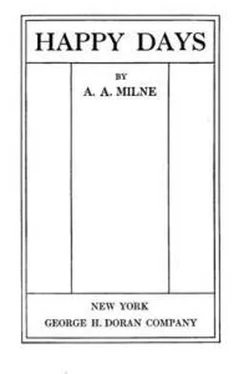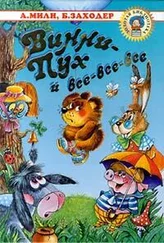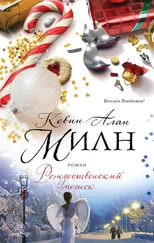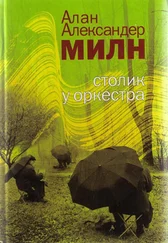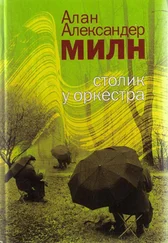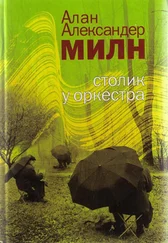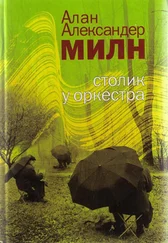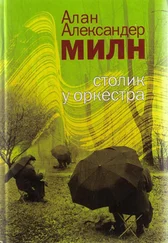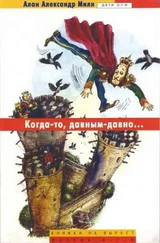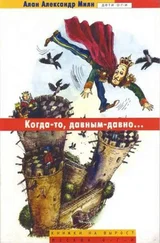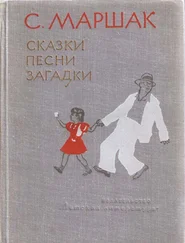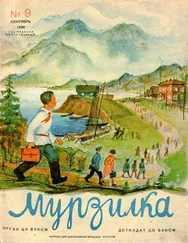~Willyum~ ( rising ). Us best be gettin' down along, Jarge, a rackun.
~Jarge.~ Ay, bor, time us chaps was moving. Don't 'e be long, lass. ( Exeunt, limping heavily. )
~Rachel~ ( sitting down on the log ). Dear old men! How I love them all in this village! I have known it all my life. How strange it is that I have never had a father or mother. Sometimes I seem to remember a life different to this—a life in fine houses and spacious parks, among beautifully dressed people ( which is surprising seeing that she was only three weeks old at the time; but the audience must be given a hint of the plot ), and then it all fades away again. ( She looks fixedly into space. )
Enter Hugh Fitzhugh, Squire.
~Fitzhugh~ ( standing behind Rachel, but missing her somehow ). Did ever man come into stranger inheritance? A wanderer in Central Australia, I hear unexpectedly of my cousin's death through an advertisement in an old copy of a Sunday newspaper. I hasten home—too late to soothe his dying hours; too late indeed to enjoy my good fortune for more than one short day. To–morrow I must give up all to the hospitals, unless by some stroke of Fate this missing girl turns up. ( Impatiently. ) Pshaw! She is dead. ( Suddenly he notices Rachel.) By heaven, a pretty girl in this out–of–the–way village! ( He walks round her. ) Gad, she is lovely! Hugh, my boy, you are in luck. ( He takes off his hat. ) Good evening, my dear!
~Rachel~ ( with a start ). Good evening.
~Fitzhugh~ ( aside ). She is adorable. She can be no common village wench. ( Aloud. ) Do you live here, my girl?
~Rachel.~ Yes, I have always lived here. ( Aside. ) How handsome he is. Down, fluttering heart.
~Fitzhugh~ ( sitting on the log beside her ). And who is the lucky village lad who is privileged to woo such beauty?
~Rachel.~ I have no lover, Sir.
~Fitzhugh~ ( taking her hand ). Can Hodge be so blind?
~Rachel~ ( innocently ). Are you making love to me?
~Fitzhugh.~ Upon my word I—( He gets up from the log, which is not really comfortable. ) What is your name?
~Rachel.~ Rachel. ( She rises. )
~Fitzhugh.~ It is the most beautiful name in the world. Rachel, will you be my wife?
~Rachel.~ But we have known each other such a short time!
~Fitzhugh~ ( lying bravely ). We have known each other for ever.
~Rachel.~ And you are a rich gentleman, while I―
~Fitzhugh.~ A gentleman, I hope, but rich—no. To–morrow I shall be a beggar. No, not a beggar if I have your love, Rachel.
~Rachel~ ( making a lucky shot at his name ). Hugh! ( They embrace. )
~Fitzhugh.~ Let us plight our troth here. See, I give you my ring!
~Rachel.~ And I give you mine.
( She takes one from the end of a chain which is round her neck, and puts it on his finger. Fitzhugh looks at it and staggers back. )
~Fitzhugh.~ Heavens! They are the same ring! ( In great excitement. ) Child, child, who are you? How came you by the crest of the Fitzhughs?
~Rachel.~ Ah, who am I? I never had any parents. When they found me they found that ring on me, and I have kept it ever since!
~Fitzhugh.~ Let me look at you! It must be! The Squire's missing daughter!
(Gaffers Jarge and Willyum, having entered unobserved at the back some time ago, have been putting in a lot of heavy by–play until wanted. )
~Jarge~ ( at last ). Lor' bless 'ee, Willyum, if it bain't Squire a–kissin' our Rachel.
~Willyum.~ Zo it du be. Here du be goings–on! What will t' passon say?
~Jarge~ ( struck with an idea ). Zay, bor, don't 'ee zee a zort o' loikeness atween t' maid and t' Squire?
~Willyum.~ Jarge, if you bain't right, lad. Happen she do have t' same nose!
( Hearing something , Fitzhugh and Rachel turn round. )
~Fitzhugh.~ Ah, my men! I'm your new Squire. Do you know who this is?
~Willyum.~ Why, her du be our Rachel.
~Fitzhugh.~ On the contrary, allow me to introduce you to Miss Fitzhugh, daughter of the late Squire!
~Jarge.~ Well, this du be a day! To think of our Rachel now!
~Fitzhugh.~ My Rachel now!
~Rachel~ ( who, it is to be hoped, has been amusing herself somehow since her last speech ). Your Rachel always. [CURTAIN.
The Scene is the Editor's room in the Office of "The Lark." Two walls of the room are completely hidden from floor to ceiling by magnificently bound books; the third wall at the back is hidden by boxes of immensely expensive cigars. The windows, of course, are in the fourth wall, which, however, need not be described, as it is never quite practicable on the stage. The floor of this apartment is chastely covered with rugs shot by the Editor in his travels, or in the Tottenham Court Road; or, in some cases, presented by admiring readers from abroad. The furniture is both elegant and commodious.
William Smith, Editor, comes in. He is superbly dressed in a fur coat and an expensive cigar. There is a blue pencil behind his ear, and a sheaf of what we call in the profession "typewritten manuscripts" under his arm. He sits down at his desk and pulls the telephone towards him.
~Smith~ ( at the telephone ). Hallo, is that you, Jones?…Yes, it's me. Just come up a moment. ( Puts down telephone and begins to open his letters. )
Enter Jones, his favourite sub–editor. He is dressed quite commonly, and is covered with ink. He salutes respectfully as he comes into the room.
~Jones.~ Good afternoon, chief.
~Smith.~ Good afternoon. Have a cigar?
~Jones.~ Thank you, chief.
~Smith.~ Have you anything to tell me?
~Jones.~ The circulation is still going up, chief. It was three million and eight last week.
~Smith~ ( testily ). How often have I told you not to call me "chief," except when there are ladies present? Why can't you do what you're told?
~Jones.~ Sorry, sir, but the fact is there are ladies present.
~Smith~ ( fingering his moustache ). Show them up. Who are they?
~Jones.~ There is only one. She says she's the lady who has been writing our anonymous "Secrets of the Boudoir" series which has made such a sensation.
~Smith~ (in amazement). I thought you told me you wrote those.
~Jones~ (simply). I did.
~Smith.~ Then why―
~Jones.~ I mean I did tell you. The truth is they came in anonymously, and I thought they were more likely to be accepted if I said I had written them. ( With great emotion. ) Forgive me, chief, but it was for the paper's sake. ( In matter–of–fact tones. ) There were one or two peculiarities of style I had to alter. She had a way of―
~Smith~ ( sternly ). How many cheques for them have you accepted for the paper's sake?
~Jones.~ Eight. For a thousand pounds each.
~Smith~ ( with tears in his eyes ). If your mother were to hear of this―
~Jones~ ( sadly ). Ah, chief, I never had a mother.
~Smith~ ( slightly put out, but recovering himself quickly ). What would your father say if―
~Jones.~ Alas, I have no relations. I was a foundling.
~Smith~ ( nettled ). In that case I shall certainly tell the master of your workhouse. To think that there should be a thief in this office.
~Jones~ ( with great pathos ). Chief, chief, I am not so vile as that. I have carefully kept all the cheques in an old stocking, and―
~Smith~ ( in surprise ). Do you wear stockings?
Читать дальше
